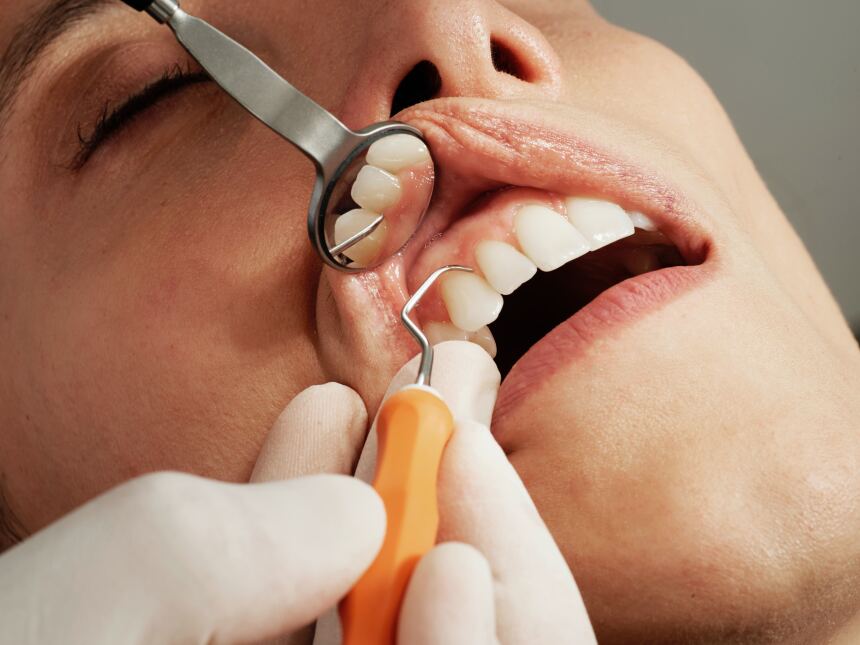How to prevent tartar without a dentist and maintain good oral health in between dental visits.
Visiting the dentist routinely is always a good idea; they can assess the condition of your mouth and spot potential problems that you might be unable to identify. Maintaining regular dental visits helps to ensure that your teeth are at their best as Ayzaaz and Shiraz can spot issues & take preventative action. However, there are maintenance tasks that you should do between appointments to take care of your oral health. Preventing tartar buildup is one of those things, but how is this done? Let’s look at the best ways to remove tartar between your scheduled dental appointments to keep your mouth healthy.

What is tartar?
Tartar is a noticeable form of plaque that is present on teeth or gums if they are not cared for properly. While ordinary plaque is still unwanted, it is not as solid and less visible than tartar, which is often a dark yellow colour and forms along your gum line..
Sometimes tartar and its subsequent diseases can cause pain, swelling, and even bleeding in your mouth. If this has happened, call Pure Smiles immediately so that we can assess the situation and provide treatment. Ignoring bleeding gums, a strange taste in your mouth and bad breath won’t address the issue and sometimes a little help from us is all you need to get your oral health back on track.
How to remove tartar from teeth
Removing tartar from teeth isn’t easily done at home. Brushing and flossing regularly give you a better chance of loosening the hardened form of plaque and, therefore, removing it. However, there is no guarantee this will work, even with tartar-specific toothpaste.
If tartar is indeed present, a dental visit may be required. Your dentist will use a scraping tool to remove the tartar effectively and in a pain-free manner. Don’t try and use makeshift tools at home to do this - the procedure should only be done by somebody qualified with the correct dental equipment.
However, you can prevent tartar from occurring in the first place. You should brush your teeth twice a day and floss regularly to reduce the chance of tartar or any plaque developing in your mouth. Using mouthwash can also provide benefits.
How do I know when to visit the dentist?
Adults should visit the dentist around every six months to stay on top of their oral hygiene. These routine appointments allow your dentist to inspect your mouth and make sure that no tartar has developed - if you make less frequent appointments, there’s a greater chance of plaque forming.
But if you already have a yellowish build-up in your mouth, you need to visit a dentist as soon as you can to limit the damage the tartar can do and have it expertly removed. Book a consultation today to get started.
